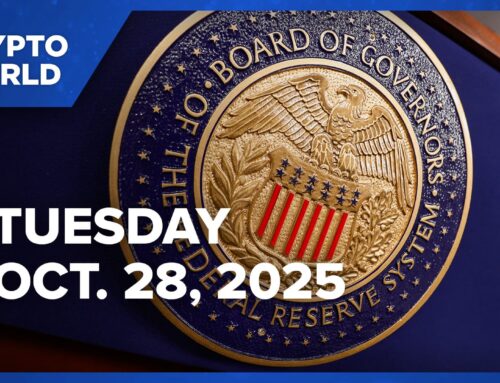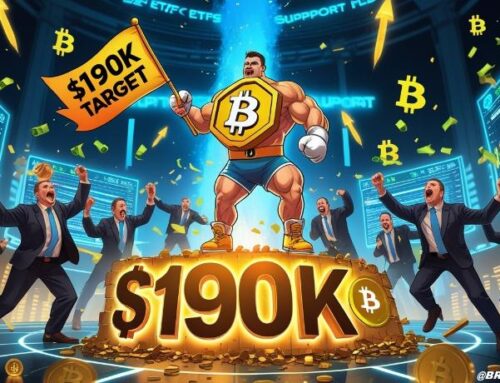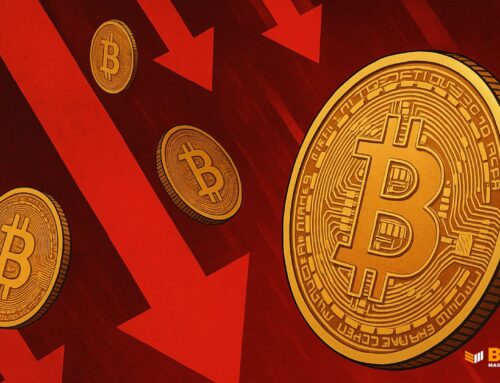Bitcoin is freedom money—Just ask Nobel Peace Prize winner
October 28, 2025
When Venezuelan opposition leader María Corina Machado won this year’s Nobel Peace Prize, the global media rightly celebrated her courage in confronting dictatorship.
A few in the world of crypto also noted that the woman who has dedicated her life to fighting for democracy recognizes Bitcoin as a lifeline. In an interview with Alex Gladstein of the Human Rights Foundation, Machado described how Venezuelans under hyperinflation used Bitcoin to protect their wealth, finance their escape, and resist government-imposed exchange controls.
Now, with her Nobel recognition, the world should catch up to the idea she voiced in that interview last year: that decentralized technology can be an instrument of freedom, not just of finance.
Bitcoin is increasingly at the center of global attention. Prices have set records this month; the world’s largest asset manager, BlackRock, has grown its ETF to almost $100 billion; governments want the digital asset in their reserve accounts; and lawmakers are finally passing rules to bring this technology into the mainstream daylight. Now that Bitcoin is set to be a mainstay of the world’s financial system, it’s time to recognize it is also freedom money. It is a solution that protects civil society when conventional finance becomes a lever of control.
As someone who lived and worked as a journalist in Venezuela during the decline of democracy under President Hugo Chávez, I witnessed how financial repression can suffocate dissent. When the government could not silence opponents through censorship, it simply closed their access to money, blocking accounts, restricting foreign exchange, and weaponizing inflation. Economic control became a subtler, but more efficient, form of authoritarianism.
Machado’s generation of Venezuelan reformers learned the hard way that political freedom without monetary freedom is fragile. That lesson is now being rediscovered globally as the conversation around crypto shifts in many places from speculation to survival.

Despite many industry insiders and their longtime advocacy for freedom technology, Bitcoin’s story has always been easy to misunderstand. It is often caricatured through its most notable proponents such as President Donald Trump in the United States and Reform UK leader Nigel Farage, both of whom critics perceive as populists wrapping themselves in Bitcoin’s banner for partisan theater and political donations. Add to that the hype circus that contaminated many ICOs, NFTs and memecoins over the years, and it’s easy to see how the technology’s reputation as “freedom money” has long been obscured.
Still, beneath the noise, a quieter reality has taken shape, championed for years by organizations such as the Human Rights Foundation and the dissidents they support. For example, Venezuela’s Leopoldo López, who spent years in prison before fleeing into exile, tells a story that captures cryptocurrency’s power. An aid convoy from neighboring Colombia may have been stopped from reaching its recipients, but peer-to-peer transactions are beyond a government’s blockade.
For Venezuela’s opposition, it became a practical tool to move resources when banks were weaponized and when the national currency became worthless. As HRF’s Gladstein helped chronicle this month in the Journal of Democracy, similar scenes are unfolding in Nigeria, Belarus and Cuba, where Bitcoin can help civil society groups to stay financially alive when everything else has been turned off.
That is why Machado’s Nobel matters beyond Venezuela. It implicitly recognizes something Western democracies still struggle to see: that money is a vector of human rights. In a digital world, the ability to transact privately and without political permission is as vital to freedom as the right to speak or assemble.
Of course, skepticism is warranted. The crypto industry has earned its share of disgrace—from the fraudulent excesses of FTX to the suspicion of insider trading around too many token launches. Those flaws have distracted from the steady, humanitarian work taking place in the background. Crypto may have made a lot of people get rich quick. But its main value can serve a far greater ideal.
Machado’s words on Bitcoin captured that nuance: The top cryptocurrency, she said, had “evolved from a humanitarian tool to a vital means of resistance.” It’s a statement that might seem dissonant in the corporate boardrooms now minting ETFs and in the political halls of Washington and Brussels debating regulation. But it is precisely in unstable economies, whether Venezuela’s or Lebanon’s, Turkey’s or Nigeria’s, that Bitcoin’s social function becomes clear as a parallel system of property rights when the official one collapses.
Critics will still ask whether Bitcoin consumes too much energy or enables crime. But such arguments miss key context. For billions who live under monetary censorship, the real environmental hazard is kleptocracy. When people find themselves forced to choose between obeying capital controls and feeding their families, technology that restores choice is not a luxury, it’s liberty.
When the industry sees historic price highs, its legitimacy cemented by major financial institutions and media attention abundant, it is worth remembering that the freedom use case came first. Before the ETFs, before the memes, before the NFT mania, Bitcoin was already helping citizens bypass economic persecution.
The Nobel Peace Prize has now, perhaps inadvertently, validated that lineage. In honoring María Corina Machado, the world celebrated a champion of democracy. In echoing her faith in Bitcoin, it may also have celebrated the technology of freedom itself.
Saul Hudson runs Angle42, a PR agency supporting startups that are innovating with crypto, AI and other frontier technologies. He is a former Reuters journalist who worked around the world. He was based in Venezuela for years and also reported on authoritarian governments from Iraq to Peru to Kazakhstan.
Search
RECENT PRESS RELEASES
Related Post



